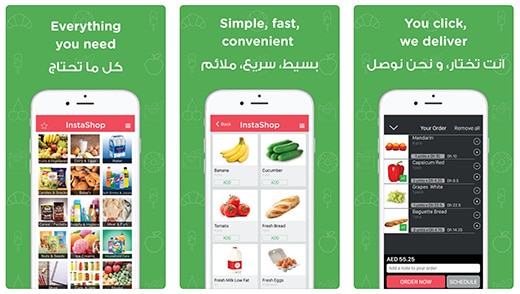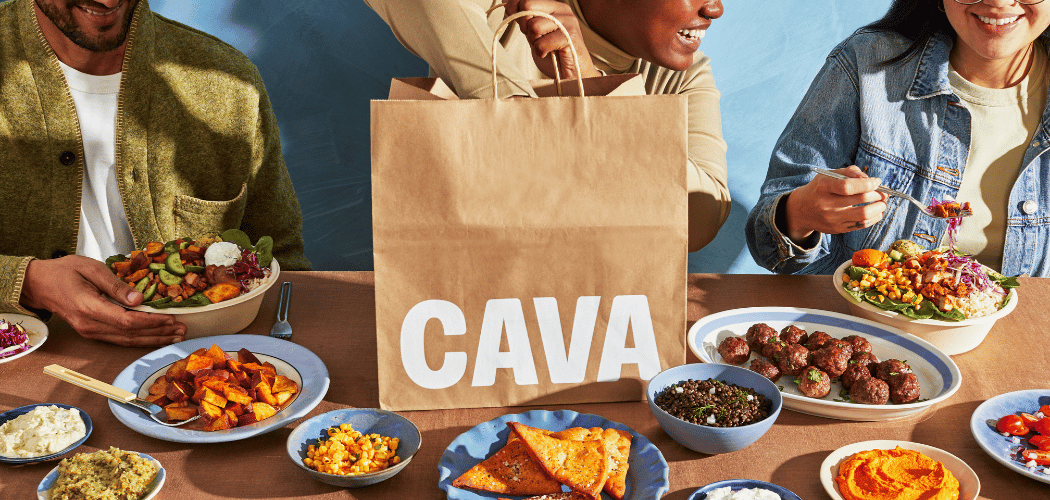An Interview with Brayden Ainzuain, Head of Digital and Innovation, Publicis Media, Middle East and North Africa
Publicis Group is the third largest communications group in the world, with an impressive history dating back to 1926 when the company began in Paris. They hold an even more impressive market position in the Middle East and North Africa, as the number one marketing agency in terms of revenue. In order to maintain this leadership position, the group includes several specialist agencies in each of their top global markets, a strategy that allows them to win most of the top clients and brands in key categories, even when those brands compete aggressively. Separate companies allows the agency the necessary 'client separation' required to manage each brand in complete confidence.
By Paula Thomas, CLMP
Fascinated by their client portfolio and approach to innovation, I met recently with their Middle East and North Africa (MENA) regional head of Digital and Innovation - Brayden Ainzuain - to get his insights on how the Middle East region is innovating and some of the key campaigns and platforms he's impressed with and why. Here are the top three Middle East digital ideas we discussed.
Shared Platforms for Convenience Retail
Two of the challenges (and opportunities) in the regional convenience industry include language and fragmentation. For example, alongside popular local retailers such as Zoom which operates over 200 stores, are many hundreds of individual 'Mom and Pop' stores which are too small to individually invest in mobile technology solutions. These small format stores are widespread throughout countries such as the United Arab Emirates (UAE), Kingdom of Saudi Arabia (KSA), and Egypt, so this has given rise to a variety of convenience platforms which allow any store to offer mobile ordering and payment services to customers who want a fast and efficient delivery service from their mobile phone. Instashop is one such platform, billing itself as 'the easiest way to order your groceries'. It's Dubai-based and seen as a clever and relevant idea as Instashop professionalises the grocery delivery industry with promises of 5-star service and deliveries in under an hour!

The Middle East is also characterised by an extremely diversified range of nationalities, as over 48% of residents in the GCC (Gulf Co-operation Council) are actually expatriates from other countries. A huge part of our regional business considerations is language - with some countries having as many people speaking Arabic (the native/official language) as speak English. One platform www.ElGrocer.com saw this as an opportunity and developed their convenience delivery platform in Arabic. They had realised it was 'easier to order a laptop online than a pint of milk' in the UAE, so they launched the first Arabic language delivery app in the region in 2017. While translating any business content is complex, developing for Arabic requires an entirely separate alphabet and layout, with the language written and read from right to left, rather than left to right.
From a marketing perspective, both platforms offer Publicis clients access to partnership solutions for their top fast-moving consumer goods (FMCG) clients. Brands such as Mars, Nestle and Mondelez invest in prominent product positioning within the app, as digital merchandising becomes more sophisticated than ever before. More importantly, the platforms also offer their clients the local consumer shopping insights that they wouldn't otherwise have access to. Convenience/impulse purchases are a category that the dominant regional eCommerce players such as Souq.com (now acquired by Amazon) have not focused on to date, preferring instead to focus on products such as electronics.
Other key learnings for the industry include the obvious importance of developing for mobile-first given the platforms commitment to speedy deliveries, but continuing to also develop desktop access for users of different demographics.
In his role advising clients how best to adapt to digital, these convenience platforms become highly effective sales and marketing solutions, with access to real-time stock inventory which is readily accessible in more developed markets such as the US and UK, as well as access to competitor sales data. The collaboration between brands and platforms provides mutually-beneficial insights throughout the whole convenience industry and they look set to thrive as customers learn to love the simplicity and speed of service they deliver.
Gamification insights
The UAE Government has set ambitious goals to continue its development as a competitive economy with a strategic focus on innovation. Local brands such as du (one of two main telco providers in the region) have launched trial campaigns in recent years using games as a tool, with great success. In an industry where a five second engagement is the duration of a typical brand impression, these custom-built games have delivered brand experiences that typically last several minutes. Attributing direct sales to engagement remains a challenge, with some media mix modelling or geographic testing available in certain circumstances but modelling is seen as costly to do and these brand channels may be under-valued as a result.
Recent research has also emphasised the dominance of visually-led social media platforms such as Snapchat in the Middle East region, with the percentage of users in the Middle East often far ahead of other regions. 42% of Snapchatters in Saudi Arabia use the platform as soon as they wake up, so it's no surprise that one of Ainzuain's favourite campaigns is a promotion for Oreo cookies which offered users an extra Snapchat filter as a micro-reward and incentive for engaging. With digital and micro-rewards increasing in popularity for loyalty programmes worldwide, it's exciting to see brands in the Middle East running such exciting and innovative campaigns.
Gamification was also used to educate consumers for product launches, and Ainzuain explained how Samsung incentivised customers to watch product videos in return for points and prizes as they launched their latest phone, with KPI's around how much time consumers spend on these short-term platforms with specific marketing objectives.
Payment Platforms
Apple Pay only recently launched in the UAE in October 2017, but given global trends and demand for mobile payment, it's not surprising that local players were first to market ahead of the global giant. Ainzuain mentioned a regional service called Beam which was the first to launch a mobile wallet in 2012, and which also rewards customers for their transactions. The brand currently claims to have over 750,000 users and in 2016, Beam became the first app to let customers in the UAE pay for their fuel from their car. In a country with extreme heat and humidity several months a year, this was a unique selling point so it remains to be seen which platform wins the hearts and minds of Middle East consumers.
Future Trends and Innovation
No discussion about loyalty, innovation and Dubai would be complete without mentioning Dubai Points - a blockchain-based project which will reward tourists and residents to visit attractions of cultural and historic significance. Promising a programme with points that can be exchanged with other global rewards, Ainzuain mentioned that the project could be the most significant to come out of the UAE when it launches. We'll be sure to keep you updated on this and other regional developments as they happen.
===================
Paula Thomas is a Certified Loyalty Marketing Professional (CLMP), Chief Content Officer, Liquid Barcodes and Independent Loyalty Consultant. In addition to working with Liquid Barcodes, her clients have included Telefonica O2, Three Mobile, Electric Ireland, Allied Irish Bank and The Entertainer, as well as Avios – the global points currency for some of the world’s top airlines. Paula is also a judge for the Loyalty Magazine Awards.
Liquid Barcodes is a leading global loyalty technology company specializing in the convenience store and foodservice industries. Their cloud-based technology platform allows retailers to create and manage their digital marketing campaigns with a proprietary process called the “customer connection cycle’ to engage, promote and reward customers activities in real-time across digital and media channels. More information at www.LiquidBarcodes.com




